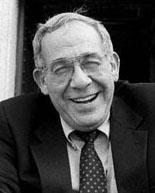Israel Reflections 2015–Day 7: Moty Cristal
One of the most interactive and influential speakers during the trip was Moty Cristal, the CEO of Next Consulting. Having begun his career as one of Israel’s leading negotiators, Moty now conducts international negotiation trainings for the private sector. He made time to speak to us at the Rabin Center and his lesson was among the favorites of the trip. As our last speaker of the trip, I knew Moty would be a great wrap-up!
Student Sean A. McCarthy recalls his experience:
Moty Cristal has become one of the leading negotiation experts in Israel and my class was fortunate enough to meet with him in Tel Aviv. He had the class participate in an exercise that involved three people dividing up a large sum of money amongst each other. Each role (A, B, and C) was given a different amount of bargaining power and rules for reaching an agreement.
If all three individuals were able to come to an agreement, they could split up $121 million. However, if A and B reached an agreement, they would split $110 million; if A and C reached an agreement, they would split $84 million; and if B and C reached an agreement, they would split $50 million.
As a member of the A group, I realized that I was going into the exercise with virtually all of the negotiating power. I was also fairly confident that a deal would be reached and that I would be a member of the deal. Ultimately, I was able to agree with B to split the $110 million with $26 million going to B and $92 million going to myself. During the debrief, I noticed that A was a party to all of the agreements reached, except for one. Many of the groups talked about how difficult it was to take the power away from A. In relation to international conflict, Moty explained that A groups could, in almost every situation, include the excluded party without losing anything themselves. This viewpoint—that while the pie can be expanded, ultimately some sharing is required for an agreement to be reached—was one of the most important lessons I learned on the trip.
Student Alex Evrard provides a different viewpoint on the experience:
During the exercise, I was a member of Nation C. Going into the negotiation with two much more powerful nations, I had little room to negotiate an agreement in which I was not the nation left out. Although my two opponents were inclusive and included me in an agreement, my fellow Nation C negotiators were not as fortunate; many of them reported back that they were left out of the final agreement. Moty’s lesson focused on how to negotiate while in a powerless situation. He told the group a story about the only time C was ever able to gain all of the money. In that situation, C was able to persuade his group members to agree to a coin flip. His lesson to the powerless negotiator was to negotiate as if there were no power. Instead of focusing on coalitions and the use of power, focus on the process of the agreement and working toward a solution that can benefit everyone. This was a wonderful exercise that left an impression on a good number of the students.

 The
The